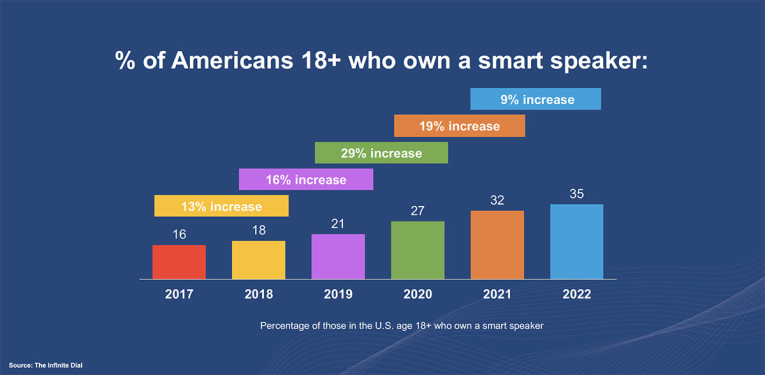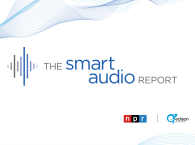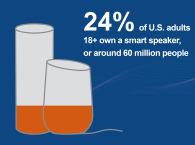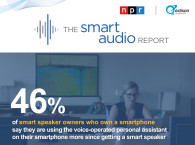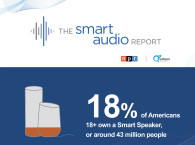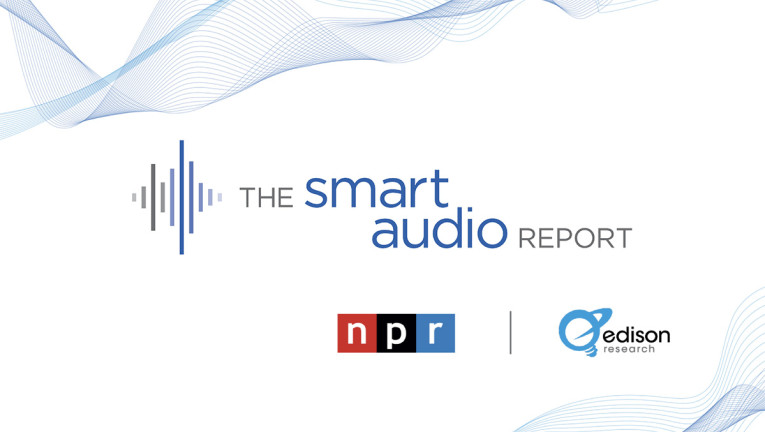
As NPR and Edison Research highlight, overall usage of voice technology is increasing: In 2022, 57% of those already familiarized with voice commands, use it daily. This report obviously attempts to highlight the potential for ad-supported content streaming to smart speakers and mobile devices in general, as well as the evolution of digital media consumer behavior with increasingly popular streaming radio and podcasting content.
Around 100 million people in the US now own or use a smart speaker - up from 60 Million in January 2022. And 53% of smart speaker owners who have heard an ad on their device agree they are likely to respond to ads on their smart speaker. With 86% of smart speaker owners agreeing that their devices allow for “a more convenient living,” the new data from the Report reveals insights on voice technology for marketers, content creators, and advertisers.
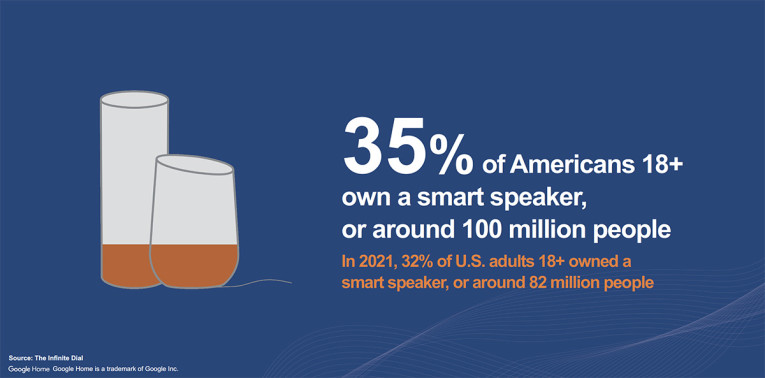
The 2022 study compares the most recent survey results with the 2017 Smart Audio Report, and also revisits families who were interviewed in 2017, creating a comprehensive picture of the changes over the last five years. Main findings from the study in 2022 tell us that 62% of Americans 18+ are using voice assistants on any device and that overall usage of voice recognition is increasing even if the main frustrations with voice assistants remain the same - particularly among young and older users.
Twenty percent of smart speaker owners spend most of their audio time listening through a smart speaker, up from 18% in 2017. Not a significant evolution considering that the original reason for buying a smart speaker in 2017 was listening to music, which remains the case in 2022. More surprising, the study also reveals that almost half of those interviewed actually listen to music and other audio content on smartphones, tablets and laptops, and that this worrying trend has increased sharply since 2017.
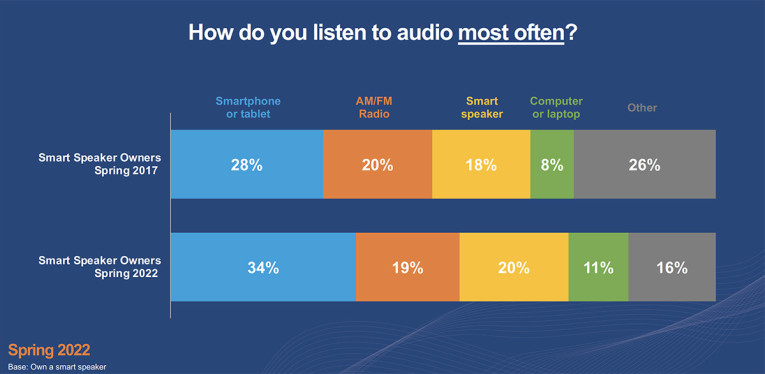
On the other hand, the weekly number of tasks that users are requesting from smart speakers, is increasing. In 2022, smart speaker owners request an average of 12.4 tasks on their device each week, up from 7.5 in 2017. Smartphone voice assistant users request an average of 10.7 tasks weekly, up from 8.8 in 2020. This means that users are discovering new features and usages, but that usage is not evolving as originally predicted.
According to Edison Research VP Megan Lazovick, "At this point the tech has become familiar for many users, so it is a great time to shake things up and get people's attention with novel audio experiences and tasks. In the grand scheme, this space is still very young, and there is much opportunity for change and growth, especially in the ways brands can communicate their messages using smart audio."
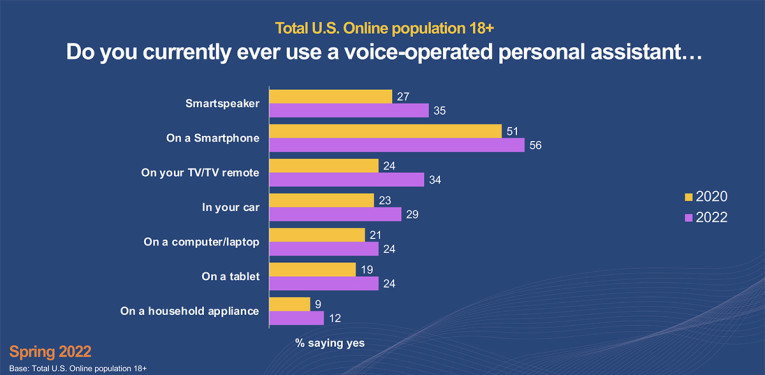
Additional key findings from the 2022 Smart Audio Report show that 86% of smart speaker owners agree that the devices "allow for a more convenient living," and that the reasons for purchasing a smart speaker that have trended up in the past five years remain basically the same and include entertaining children, discovering new songs, and listening to podcasts. And podcasts do remain a strong content format for voice-based devices. The number of speaker owners who request to listen to a podcast on their smart speaker in a typical week increased by 22% over the past 5 years.
"We are thrilled to see the interest and use of smart speakers continue to grow, five years after the original installment of this Report. This data confirms that there are even more opportunities for both publishers and brands alike to connect with this growing and engaged audience," says NPM VP of Sponsorship Marketing Lamar Johnson.
The Smart Audio Report 2022 can be found here: npr.org/smartaudio
www.npr.org
www.edisonresearch.com
